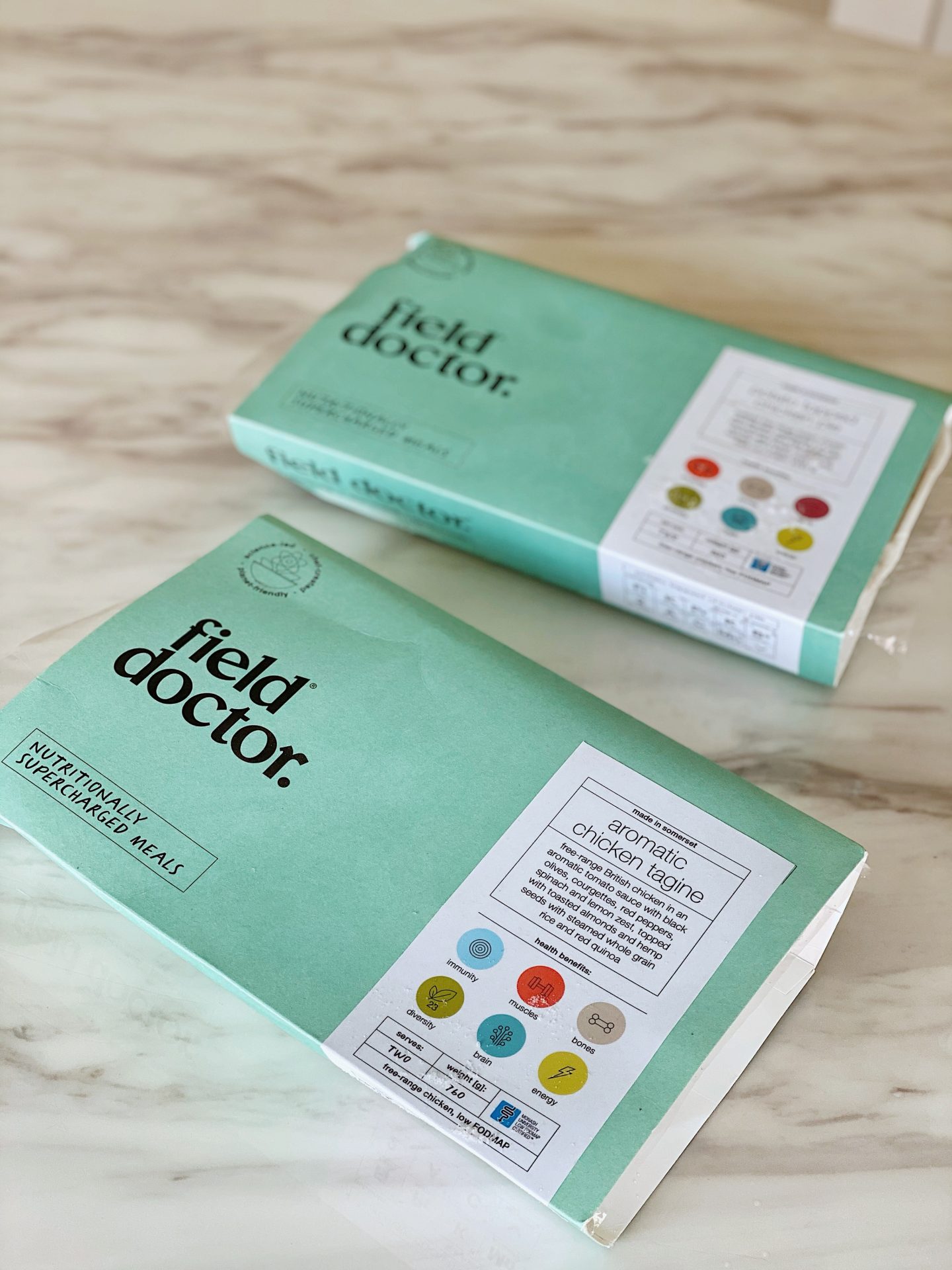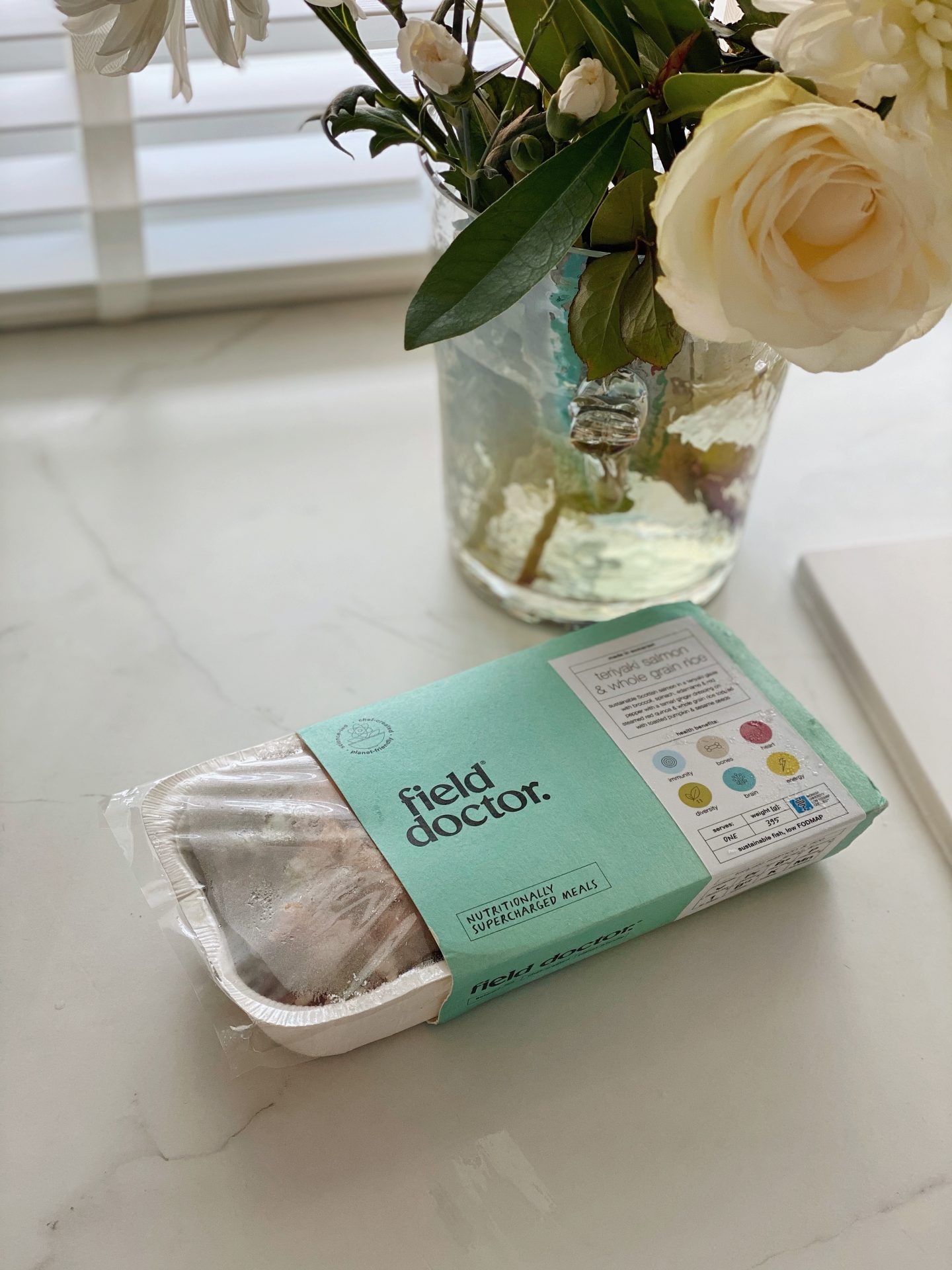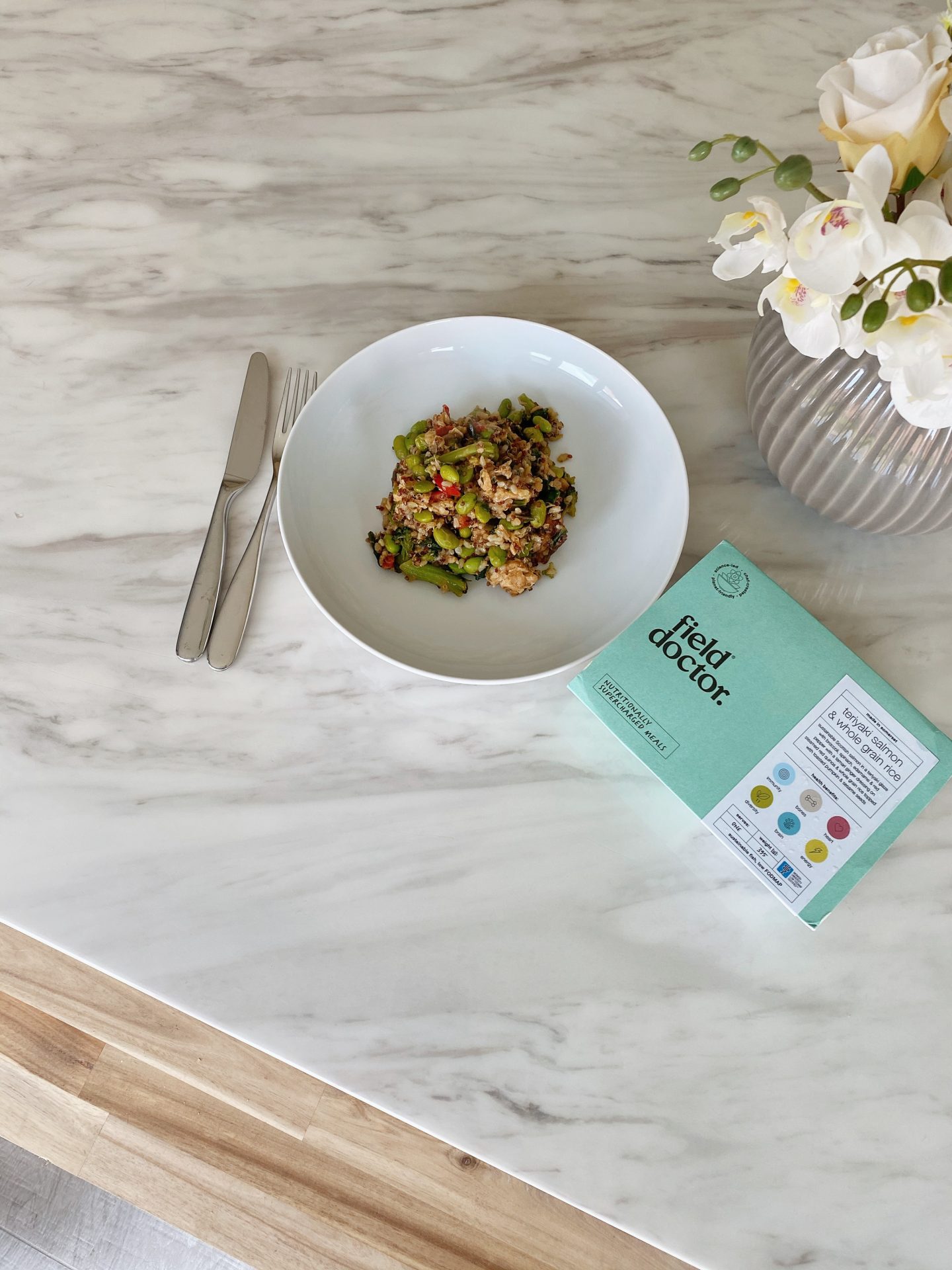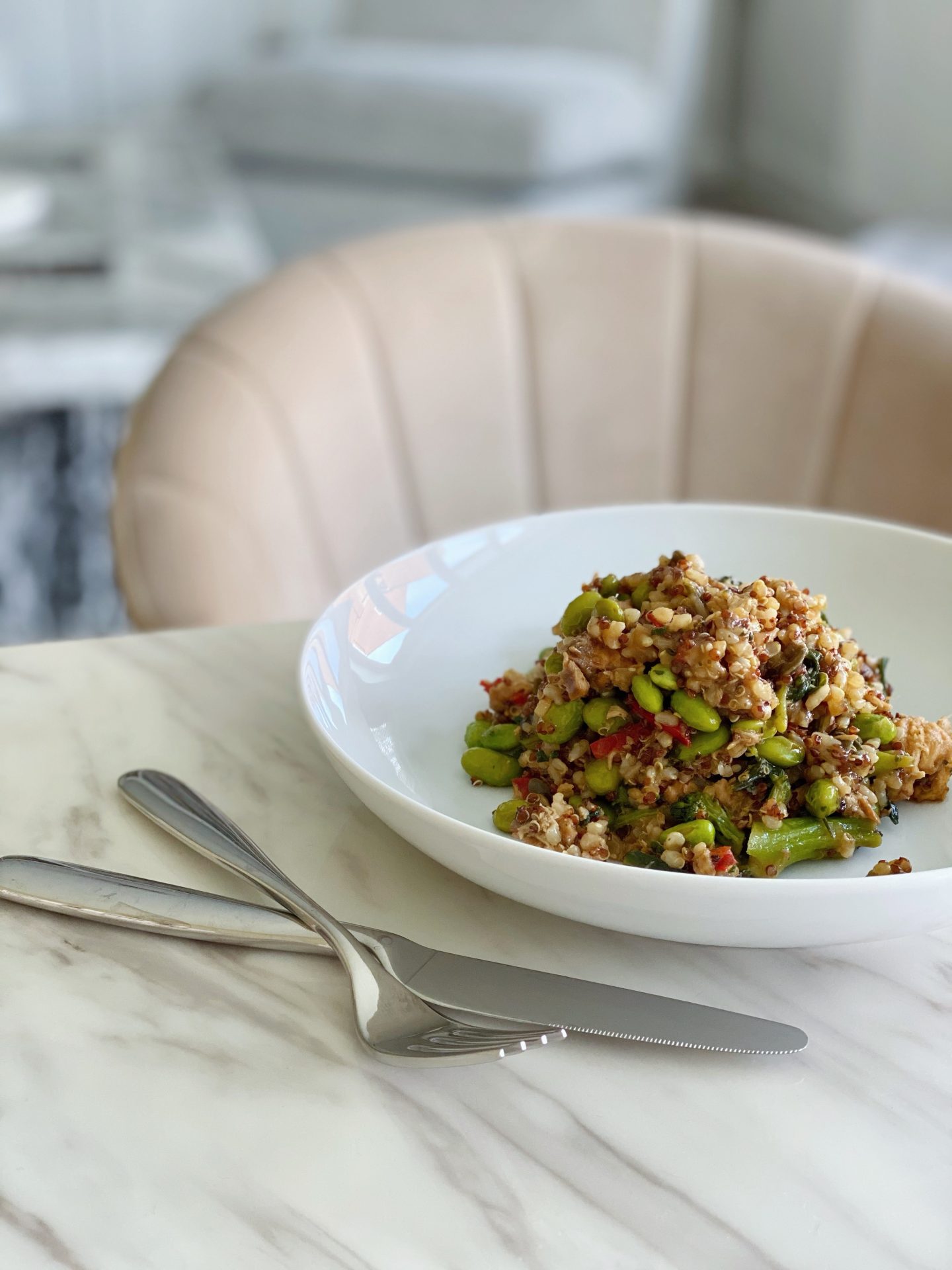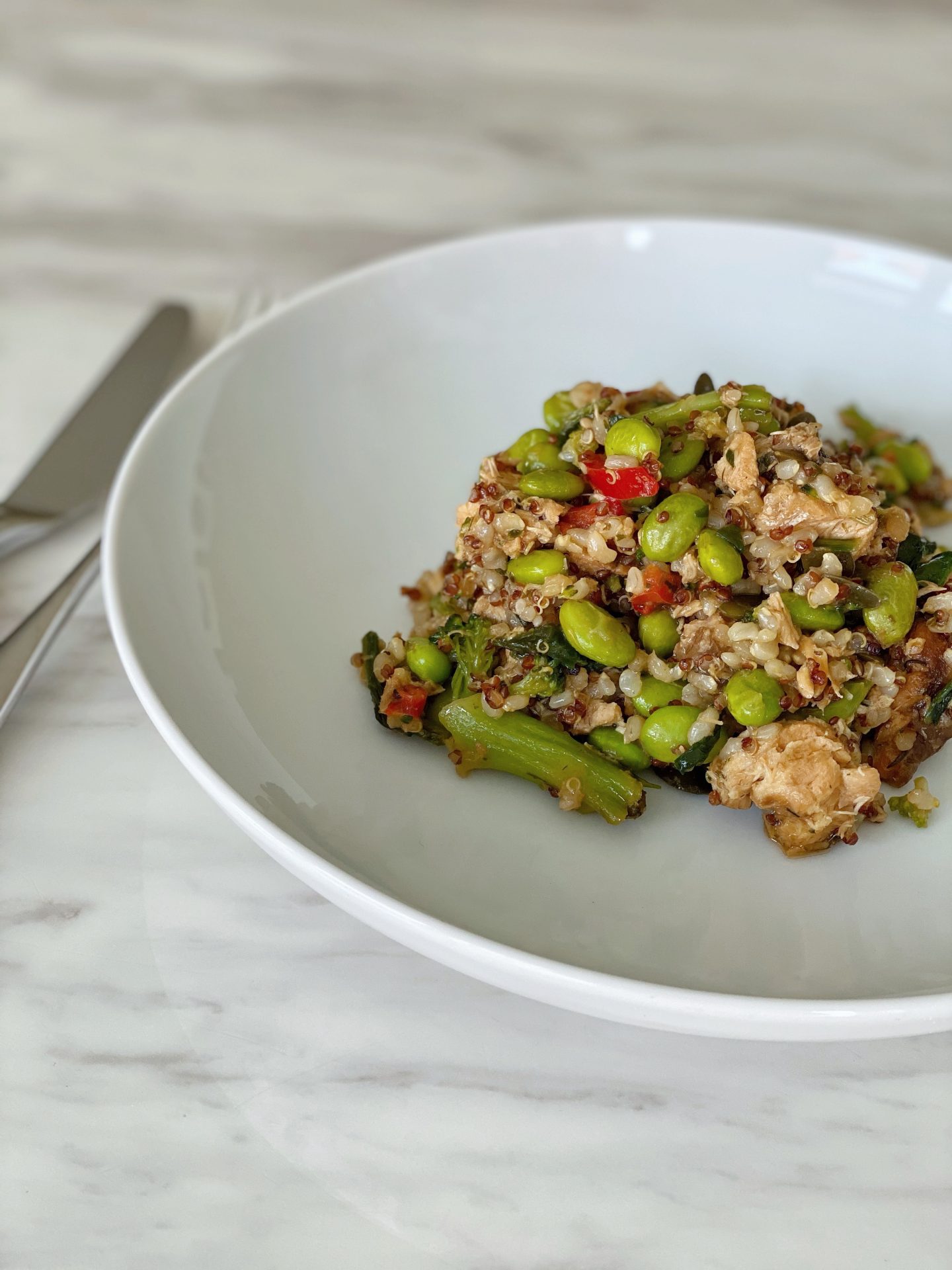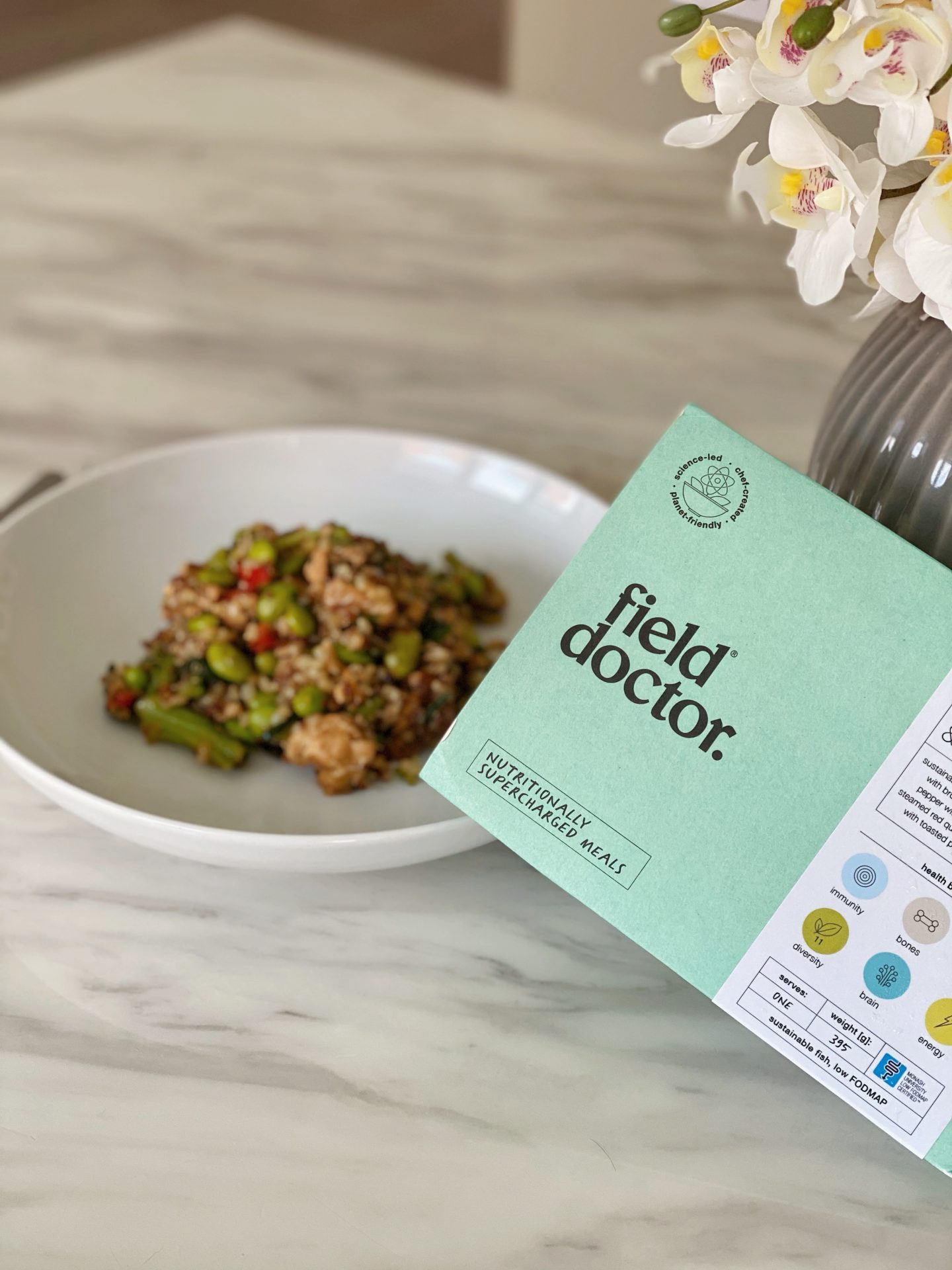Ad – Field Doctor
When I was diagnosed with IBS aged 14, I naively thought that putting a name to my symptoms would mean they’d be able to be treated, cured and forgotten.
But of course, that wasn’t the case and so years of trial, error and tears ensued as I tried to get to the root cause of my issues. In the last decade, it became apparent that food was a HUGE trigger for the uglier bunch of my symptoms (many toilet trips, extreme bloating and pain that would wake me up in the night) and so I started keeping an extensive food diary to pinpoint what loved my body – and what hated it.
While this was an extremely helpful tool in understanding my condition, in doing so – I became very fearful of certain foods and ended up eating a lot of plain, beige dishes because they were easy and ‘safe’.
I went through particularly bad periods (especially during times of stress at university) where I was very limited with food, sticking to plain chicken, white rice and pasta because it caused the least reaction. I wasn’t enjoying my food, instead I was worrying what kind of a reaction it would have with my body.
And while I’ve definitely overcome this way of thinking over the years, I still feel a little uninspired when it comes to cooking at home or thinking about what to eat for dinner. I immediately gravitate towards my ‘safe’ meals.
And I know I’m not alone, so many of you who reach out regularly talk about food and how it can affect your IBS symptoms – meaning you forgo flavoursome meals for limited dishes.
Field Doctor have joined forces with The IBS Network to launch their ‘Back To Basics’ campaign to encourage us to fall in love with food again, raise awareness of the condition and provide support for sufferers so that we don’t have to let fear steer our lives or our relationship with food.
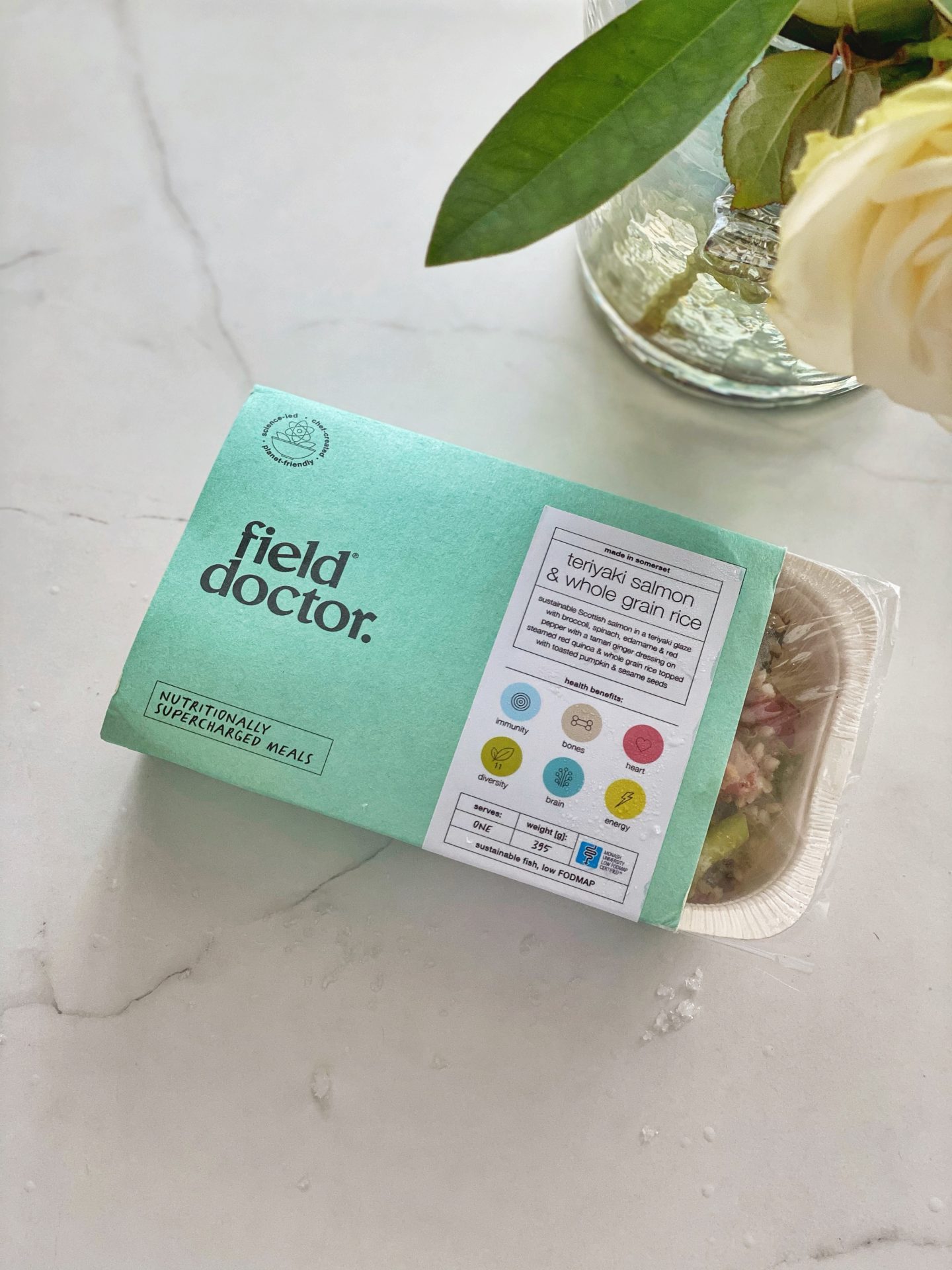
So let’s get back to basics…
More than 12 million people in the UK suffer from Irritable Bowel Syndrome (IBS), which is a functional disorder of the bowel. The condition can be characterised by symptoms such as bloating, periods of ongoing constipation, diarrhoea or a fluctuation of the two, passing mucus, abdominal pain, fatigue and a very swollen stomach. Symptoms can come and go and can last for days, weeks or even months at a time. IBS is a very individual condition, so symptoms (and the severity of symptoms) will vary from person to person.
There is no specific cause of IBS, but common risk factors include an attack of gastroenteritis, a traumatic event or series of events, and courses of powerful antibiotics.
Symptoms can be triggered by a combination of the food we eat and the stress we have in our lives. Eating food high in fat, consuming alcohol, eating large portions, lots of fruit and vegetables, fizzy drinks and high fibre foods may also contribute to symptoms. Additionally, not getting enough sleep, rushing meals and an erratic eating pattern may also cause IBS flare-ups.
The IBS Network is the national charity supporting those in the UK living with IBS. Their work encourages those with IBS to live better with the condition through effective self-care. They believe that it is possible to live well with IBS, it just takes positivity, determination and focus. And I totally echo that sentiment.
It may be frightening, challenging or overwhelming at times, but you can take control of your condition rather than let it control you.
Sufferers may benefit from trialling a low FODMAP diet in order to establish which common trigger foods may be affecting their symptoms. FODMAPs stands for fermentable oligo-saccharides, di-saccharides, mono-saccharides and polyols. Essentially, they are a short-chain carbohydrate (sugar) that isn’t properly absorbed in the gut, which can trigger symptoms in those with IBS.
And while this is an effective management tool for IBS (76% of sufferers reported feeling better) I know first hand how overwhelming it can be to completely overhaul your eating habits and cut out potential trigger foods. I would head to the supermarket with long lists of things I ‘couldn’t’ eat which left me feeling uninspired and clueless with regards to creating wholesome, tasty meals which wouldn’t trigger my symptoms.
Which is where Field Doctor comes in. They do all of the legwork for you and make trying a low FODMAP diet super simple!
Who are Field Doctor?
Field Doctor offer nutritionally supercharged chef-made meals which are frozen and then delivered to your doorstep. Crafted in their kitchen in Somerset using sustainably sourced ingredients, each meal is packed with flavour, nutrients and health benefits, without the FODMAPs.
Developed by Sasha Watkins, who was one of the first dieticians in the UK to be trained in the low FODMAP diet (and subsequently has published research on IBS, food allergy and intolerance), the meals are nutritious, delicious and IBS friendly. And I can vouch for this first hand, having trialled several of them personally!
You can buy one or two person serving sizes and choose from a selection of delicious meals including; potato topped chicken pie, sweet potato & spinach korma, goan fish curry, aromatic chicken tagine, beef ragu penne, Persian chicken and field green risotto.
Our household favourite is the teriyaki salmon & whole grain rice, which comes with broccoli, spinach, edamame & red pepper with a tamari ginger dressing on steamed red quinoa & whole grain rice topped with toasted pumpkin & sesame seeds. A combination I’d have never have thought about myself – but it’s delicious and low FODMAP!
Wherever you are in your IBS journey, please know you’re not alone and you can live a full (and flavoursome) life despite your symptoms. Be kind to yourself and your body and be patient, it does get better! There is support out there if you need it!
